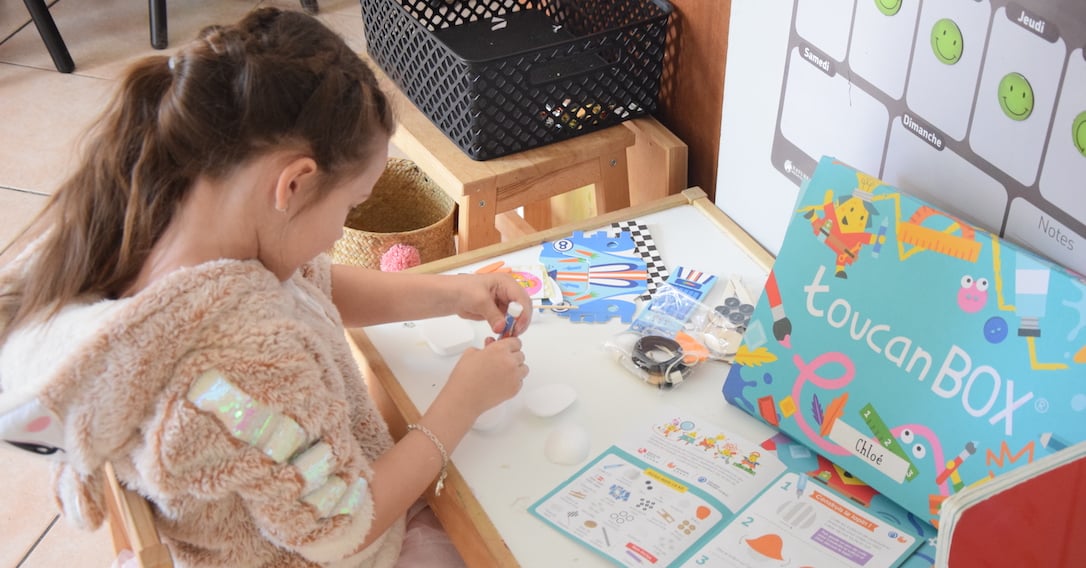CRAFTING, MENTAL WELLBEING AND CHILDREN’S COGNITIVE DEVELOPMENT | toucanBox
Over the course of lockdown parents have expressed their concerns for children’s educational needs and mental wellbeing. With the closure of schools and extracurricular groups, and the introduction of social distancing, children across the UK have been separated from the educational and familial benefits of their usual routines.
We wanted some further insight into how parents have navigated the challenges of raising kids during the pandemic, (we know it hasn’t been easy) so we conducted a survey of 556 toucanBox parents and asked them about their experience in handling their child’s development over lockdown and how toucanBox has helped.
How has lockdown affected child development?
Our survey found that the primary concern of parents was the mental wellbeing of their children.
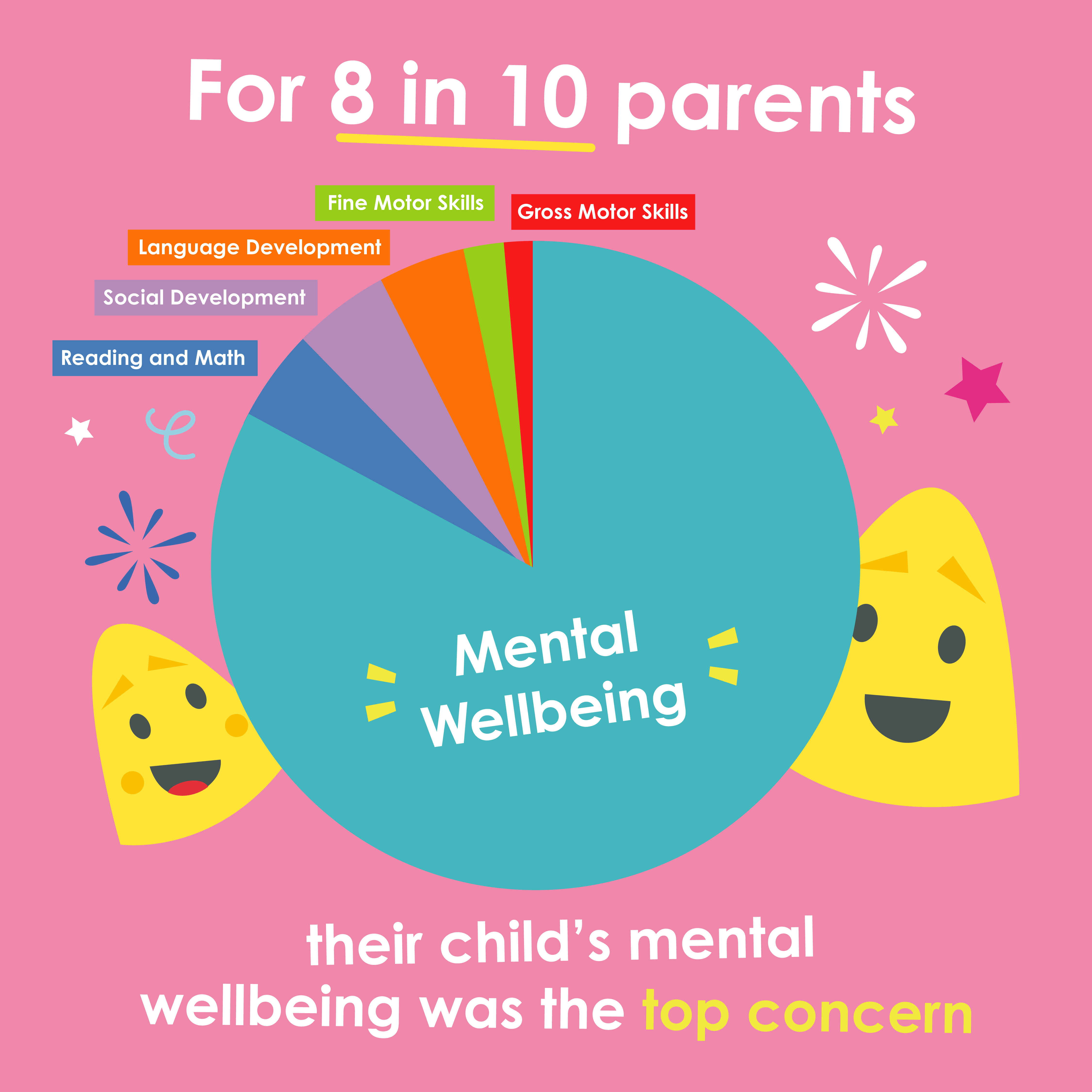
The survey also concluded that since lockdown began, almost 8 in 10 children spent more than 3 months at home and parents struggled to keep restless kids engaged with their school work and maintaining a positive outlook.
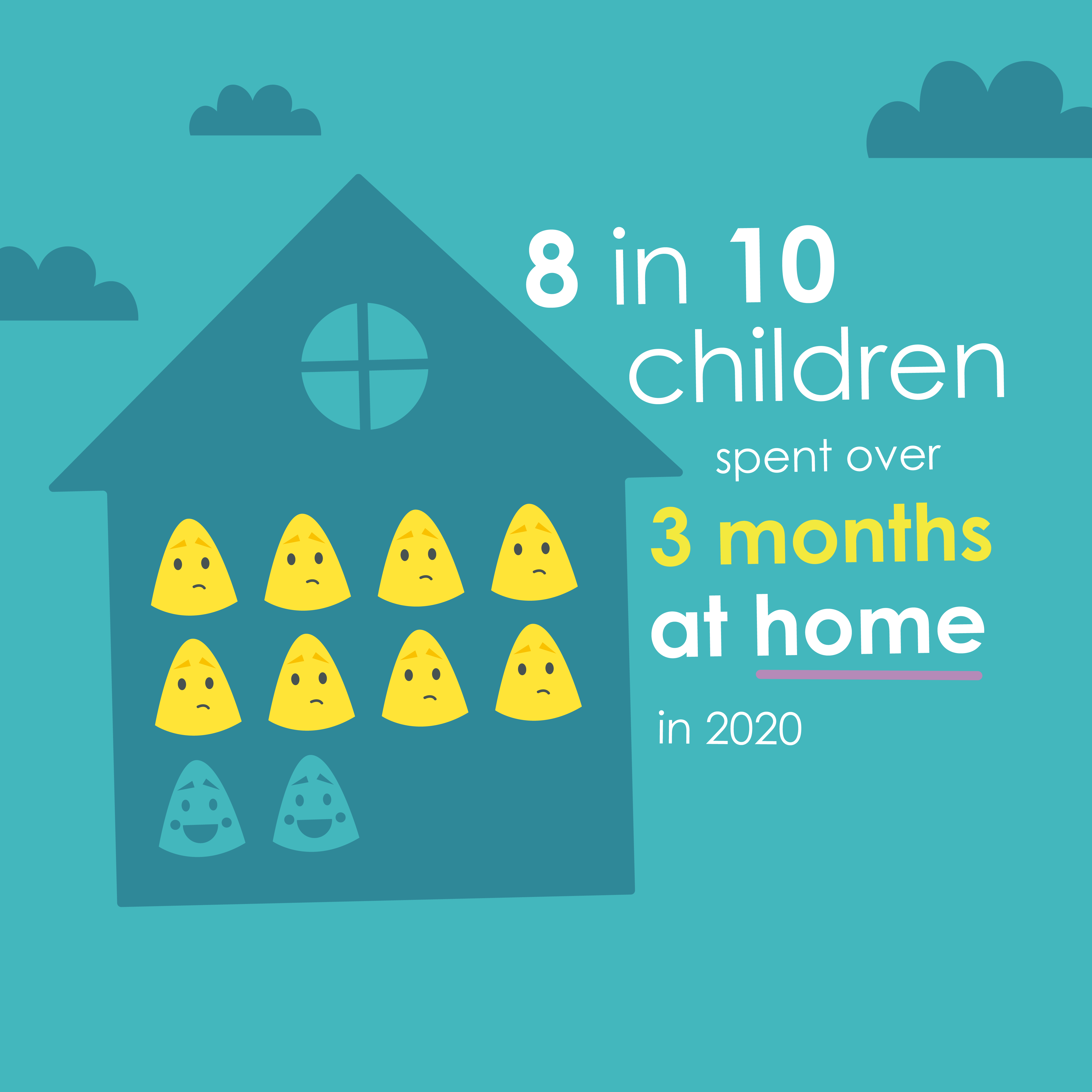
Indeed, a Co-SPACE (COVID-19 Supporting Parents, Adolescents, and Children in Epidemics) survey, led by experts at the University of Oxford, in which 12,300 parents participated, tracked children and young people’s mental health throughout the Covid-19 crisis. Participating parents and carers reported that their children displayed increasingly difficult behaviours, including temper tantrums, arguments and not doing what they were being asked to do by adults during the first lockdown. They also became more fidgety and restless and had greater difficulty paying attention.
Fortunately parents, schools and educators have found plenty of exciting and innovative ways to make sure children continued to learn and keep a positive mental attitude. Whether it be zoom lessons, virtual museum tours, socially distanced play with friends or enjoying toucanBox time, lots of little ones all over the country have managed to stay happy and stay curious. We’re so glad that toucanBox brought a smile to so many children during lockdown.
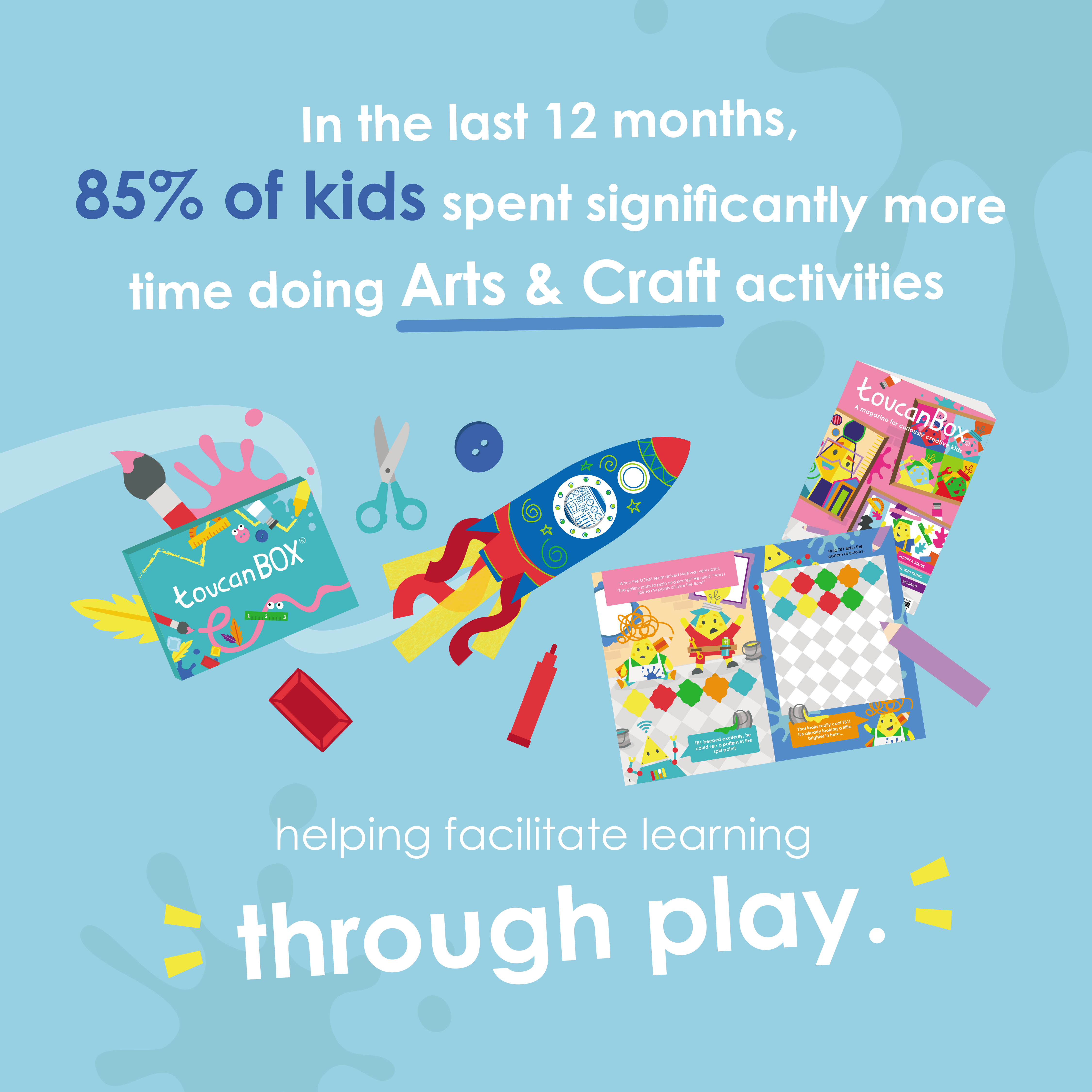
“Something to look forward to”
When asked about the main challenges of lockdown, our survey found that 8 in 10 parents cited their child’s mental wellbeing as their top priority. Our respondents told us that giving children “something positive to look forward to” - in support of their children’s mental wellbeing - was their primary reason for getting a toucanBox.
Anticipating the arrival of a personalised box of crafts gave lots of kids something special to rely on happening every month. When the box comes through the letterbox, with the child’s name on the front, it creates an exciting routine for little ones to look forward to.
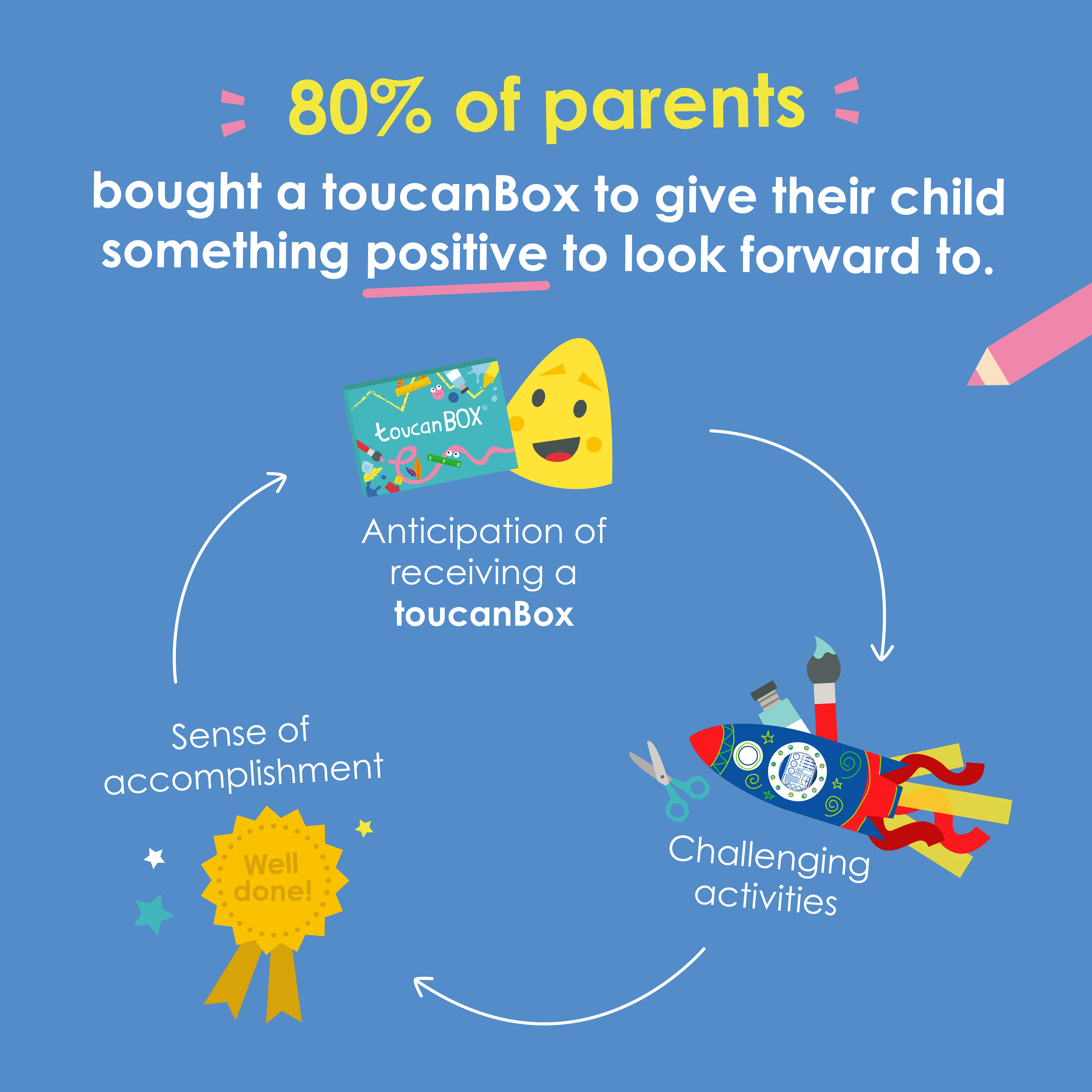
There’s plenty of evidence to support the theory that having “something to look forward to” is a significant strategy for improved mental health. Atlanta therapist LeNaya Smith Crawford, speaking to the Huffington Post, claimed, “During particularly stressful moments in time, like our current pandemic, it can be beneficial to have something to look forward to.”
Clinical psychologist and author Marie Murray, also states, “It is important to have something to look forward to. It is a significant mental health strategy: to know that there is something positive that is definitely going to happen.”
What are the mental health benefits of crafting?
Another finding our survey revealed was that one third of respondents referenced Arts and Craft activities as the most fun for their child to do. We were delighted that these findings, along with customer reviews and feedback, indicated the routine arrival of a toucanBox (and the exciting crafts inside) helped many children to maintain a positive mental attitude throughout the turbulent time of lockdown.
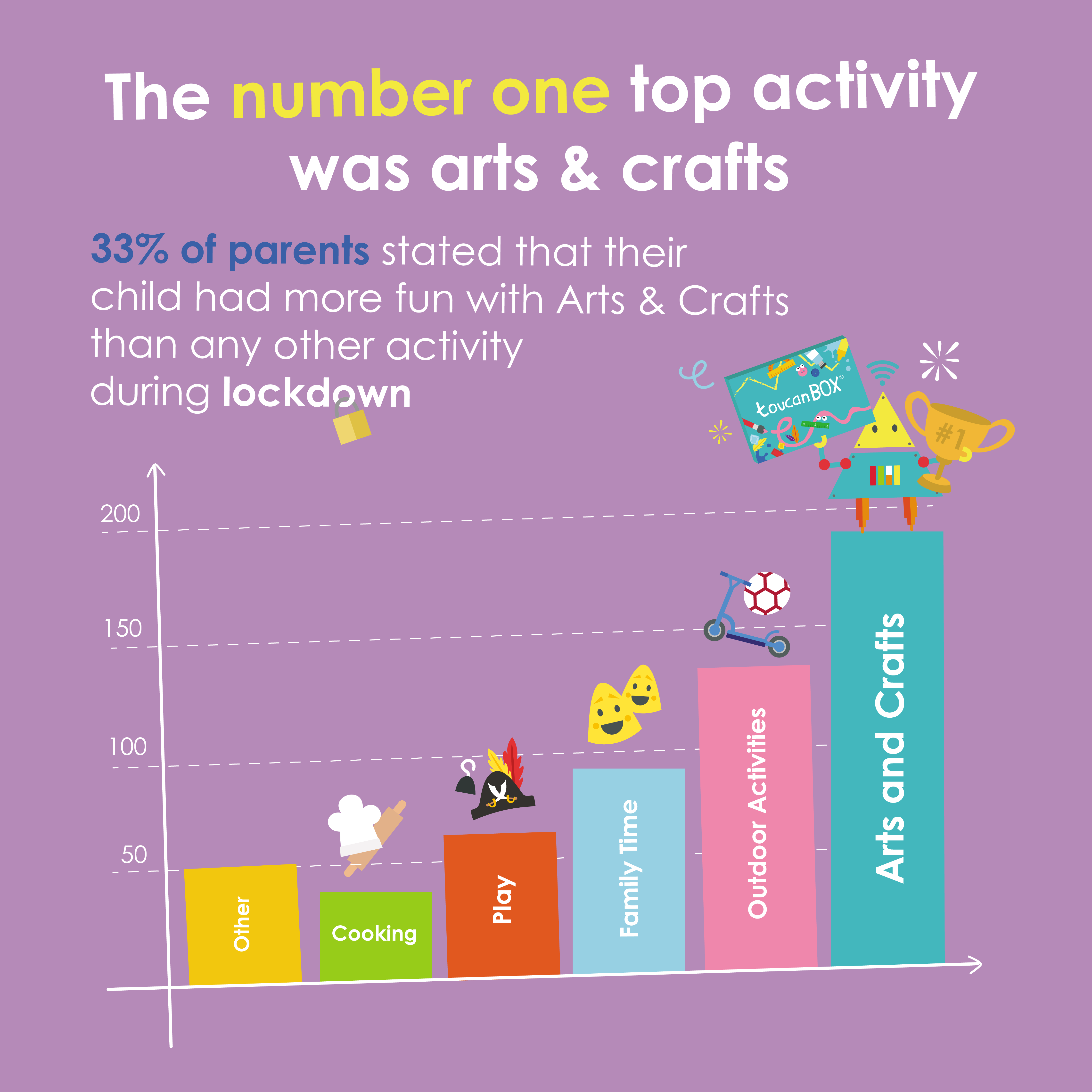
However, it’s important to note that the anticipation and enjoyment of play has significant cognitive benefits besides simply improving mental health. Research conducted in 2002 by Pekrun, Goetz, Wolfram, and Perry concluded that “positive emotions prove to be beneficial for students' learning” and found that emotions significantly influenced the learning strategies of students. Cognitive resources, self-regulation, motivation, and academic achievement improve when students experience positive emotions. Regularly enjoying toucanBox crafts with your child not only improves their mental wellbeing but also primes their mind to be more receptive to other learning opportunities.
How does toucanBox support cognitive development in children?
As has been evidenced, regular crafting creates a routine which fosters good mental health. Good mental health makes children more receptive to learning. toucanBox not only helps to put your child in the right state of mind to learn, it also provides crafts that feed into the school curriculum and aid cognitive development.
Learning through play
We know that much of what a child learns will be learnt through play. According to our survey, 40% of parents cited arts and crafts as their most purchased homeschooling resource and found it the most useful homeschooling resource too. Many of our crafts are influenced by the school syllabus, so whether your child is learning about habitats, the solar system or mini beasts, crafting can be an excellent learning prompt that aids their academic work.
Cognitive development
Crafts also help your child’s cognitive development. A child’s cognitive development relates to their ability to process information. How does the child thinks, explore and problem solve? We can understand a child’s cognitive development in a variety of ways, including their ability to utilise language, follow instructions and employ gross and fine motor skills to complete a task. Cognitive development is essential for children as they begin to make sense of the world around them and arts and crafts create an environment in which these skills can be explored, trialled and tested.
Essential skills
Crafting practises and refines essential skills like construction, following instructions, language, creativity, fine motor skills and more. Constructing components of a craft encourages your child to think methodically and uses both gross and fine motor skills, e.g. slotting and assembling, and threading and pinching. Crafting also engages children with a variety of subjects (space, animals, nature etc.) in a hands on manner, they must implement and develop directional language and subject specific vocabulary to make and discuss their craft. The time your child spends focussed on crafting a Mini Greenhouse, Giraffe Periscope or Planets Poster doesn’t just result in a fun afternoon with you and your family, it’s beneficial for your child’s cognitive development.
Research by Dr. Karyn Purvis also highlights the importance of play when learning. Purvis discovered that it takes approximately 400 repetitions to create a new synapse in the brain, unless it is done in play, in which case it only takes 10 to 20 repetitions.
Clearly, the benefits of crafting are numerous, especially when combined with the routine delivery that toucanBox offers. We are so pleased to have made these findings and to learn more about how our work can help children’s cognitive development and mental health.
We would like to thank everyone who responded to our survey for their invaluable insights into the benefits of toucanBox. We are so pleased to have had such positive feedback.
Not tried toucanBox yet?
Want craft projects, with all the materials you'll need, delivered straight to your door? Sign up today and save 50% on your first box! Not ready to commit? Subscribe to our fun-filled weekly newsletter, jam packed with craft ideas, recipes, fun activities and more!
SHARE YOUR CREATIONS WITH US
We’d love to see your creations, so why not share them on Facebook, Instagram or Twitter with #toucanBox. Our favourite snaps could feature in the next issue of toucanBox Magazine!
References: COVID-19 Supporting Parents, Adolescents, and Children in Epidemics
LeNaya Smith Crawford Huffington Post
Marie Murray Irish Times
Pekrun, Goetz, Wolfram, and Perry Oxford University Press
Dr. Karyn Purvis Oak Tree Development Center
